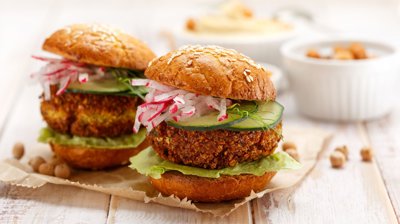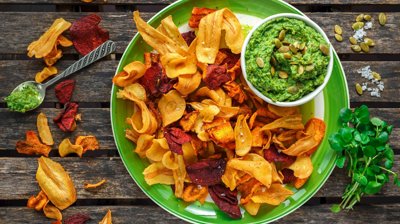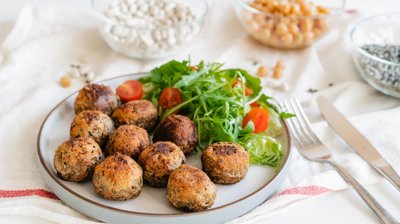Modern nutrition and ultra-processed food
Approaches to modern nutrition are shifting, with manufacturers adapting product formulations to appease an increasingly health-conscious consumer base. The European EIT Food programme says there is widespread confusion about ultra-processed foods (UPFs), with mixed messages, lack of clear labelling and lack of affordability for healthier options. Research continues into how and whether processing is uniquely significant for health but, as people grow more sceptical of ultra-processed foods, manufacturers must find ways to innovate and reformulate processed foods.
Providing transparent information about ingredients used could be one way to ease safety concerns about ultra-processed food and regain customers' trust. However, it has also been observed that the UPFs category overlaps substantially with foods that are high in fat, sugar and salt so limiting these potentially harmful ingredients could also help manufacturers maintain consumer appeal. Certain simple, clean label, recognisable and multifunctional ingredients, that allow manufacturers to reduce the salt, fat and sugar, may be useful tools for this type of reformulation.
What are ultra-processed foods?
Ultra-processed foods (UPFs) refer to food and drink products that have gone through extensive processing. Processing itself can vary from product to product and may involve chemical modifications, additives, and fractionation (where whole foods are broken down to create new products).
Processing food products can be done for multiple reasons such as extending shelf life, preserving food or changing flavours. Definitions for what is and isn’t a UPF vary widely. The original NOVA Food Classification system breaks foods down into four categories based on their level of processing. According to this classification, UPFs undergo heavy processing, and typically include one or more ingredients that consumers won’t recognise in their kitchen – most commonly artificial colours, flavours, preservatives and emulsifiers. However, recent challenges to the system could prompt other regulatory bodies to switch to their own systems of classification.
What are the challenges facing ultra-process foods?
Media scrutiny has increased significantly in recent years and UPFs can sometimes have a negative association with unhealthy diets, making it a difficult area to navigate for manufacturers. As UK health guidance states, not all processed foods are unhealthy, and most products on supermarket shelves are, to some extent, processed. However, questions still remain about the potential health impacts of some ultra-processed ingredients, leading some consumers to avoid all UPFs rather than try to distinguish between them. To mitigate this, manufacturers need to be able to selectively utilise UPF solutions that contribute to, rather than hinder, healthy eating, whilst keeping their ingredients lists short and simple.
Why are consumer attitudes to ultra-processed food evolving?
Consumer focus on UPFs seems to be an evolution of the clean label trend. First, consumers tried to avoid GMO ingredients, then E-numbers, artificial colours and additives, and now processing is under the spotlight following research which has highlighted links between some UPFs and health issues like obesity and heart disease*. This marked shift in attitudes means that there is a growing trend in consumers seeking natural, clean-label or whole foods. However, convenience still drives some choices, and there’s also been a notable rise in demand for functional foods.
This evolving perspective is reshaping how manufacturers formulate, package, and market processed products. They are seeking solutions to ensure the ingredients they use in their processed food are functional and clean label, delivering health benefits to appeal to an increasingly health-conscious consumer base.
How can Ohly's solutions help to make processed food healthier?
Yeast-based solutions can allow manufacturers to create better-for-you formulations with transparent ingredient lists. Yeast-based solutions contribute to:
Clean-label alternatives
Yeast-based ingredients provide a label friendly option for manufacturers seeking to meet growing consumer demand for minimally processed products. Yeast extracts are particularly useful for modulating and elevating flavour, as well as masking off-notes. Their recognisable, simple origin allows brands to list them as natural on ingredient labels, supporting transparent, easy-to-understand claims. As consumers seek shorter ingredient lists, yeast extracts present an effective, more consumer-friendly option aligned with clean-label standards.
Salt reduction
The versatility of yeast offers an alternative approach to reducing sodium across various food categories. Ohly's yeast-based solutions help to reduce sodium by up to 40% in food formulations by elevating flavours to reduce the need for salt and also by bringing upfront salinity without flavour profile changes. This allows manufacturers to create tasty food with minimum salt and in support of WHO recommendations for populations to reduce their salt intake.
Saturated fat reduction
Easy-to-use, powdered lipids support saturated fat reduction by enhancing the texture of food formulations, helping to create smooth, creamy mouthfeel without the need for animal (saturated) fat. Our NEIVA High Oleic Sunflower Oil Powder contains no hydrogenated oil and no trans-fats and the US Food and Drugs Administration has approved a qualified health claim for oils containing high levels of oleic acid, including high oleic sunflower oil. This allows food labels to state that high oleic sunflower oil may help reduce the risk of heart disease when used in place of saturated fats.
Ohly's ingredient solutions
Ohly’s yeast-based ingredients empower manufacturers to create healthier, label friendly products that resonate with today’s health-conscious consumers. With decades of expertise in yeast fermentation and flavour delivery, Ohly provides reliable, highly functional solutions for a wide range of applications. Our commitment to innovation and quality ensures that manufacturers can achieve nutritional goals while maintaining the delicious, eatings experience consumers expect.
Learn more
Discover how yeast-based ingredients can be integrated into your product formulations, supporting you as you navigate shifting attitudes towards UPFs.
More Food Blogs

Sodium reduction: how yeast extract supports ‘better-for-you’ snack formulations

How yeast extracts reduce the need for salt in food processing

What is off-note masking and how is yeast extract used in this?

What are yeast extracts & how are they used in the food processing industry?

Deliver authentic taste and texture in vegan food with yeast-based solutions

What is taste modulation & how does yeast extract help?

Unlocking the latest flavour trends: what food manufacturers need to know

The role of yeast extract in the plant-based food industry


